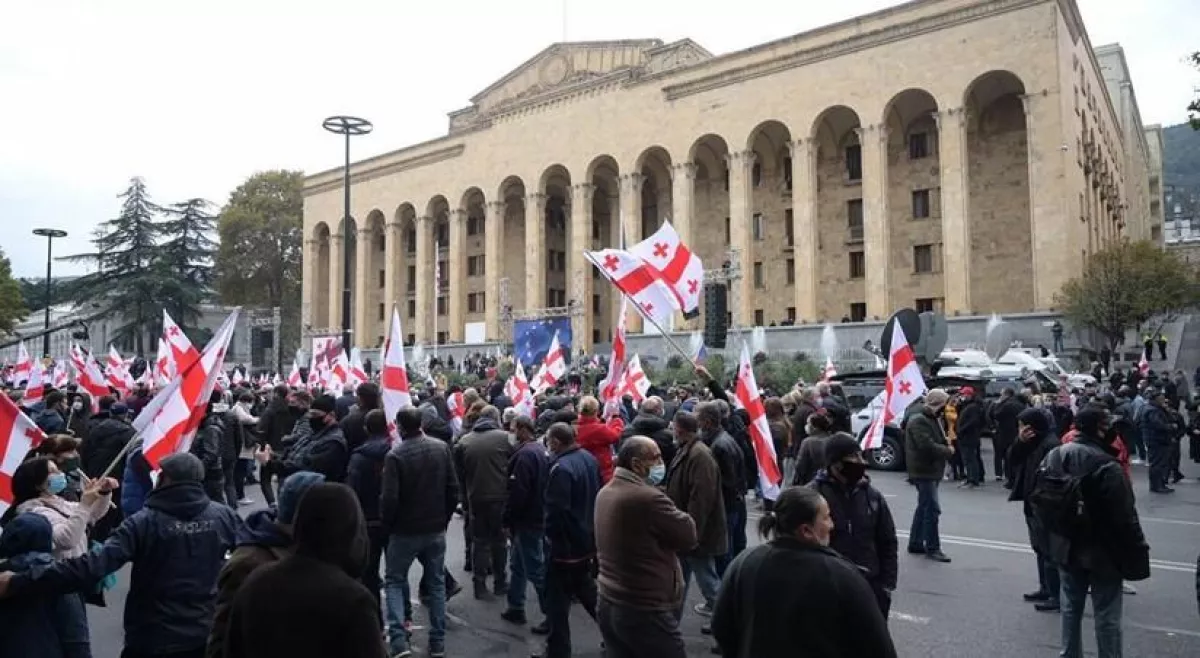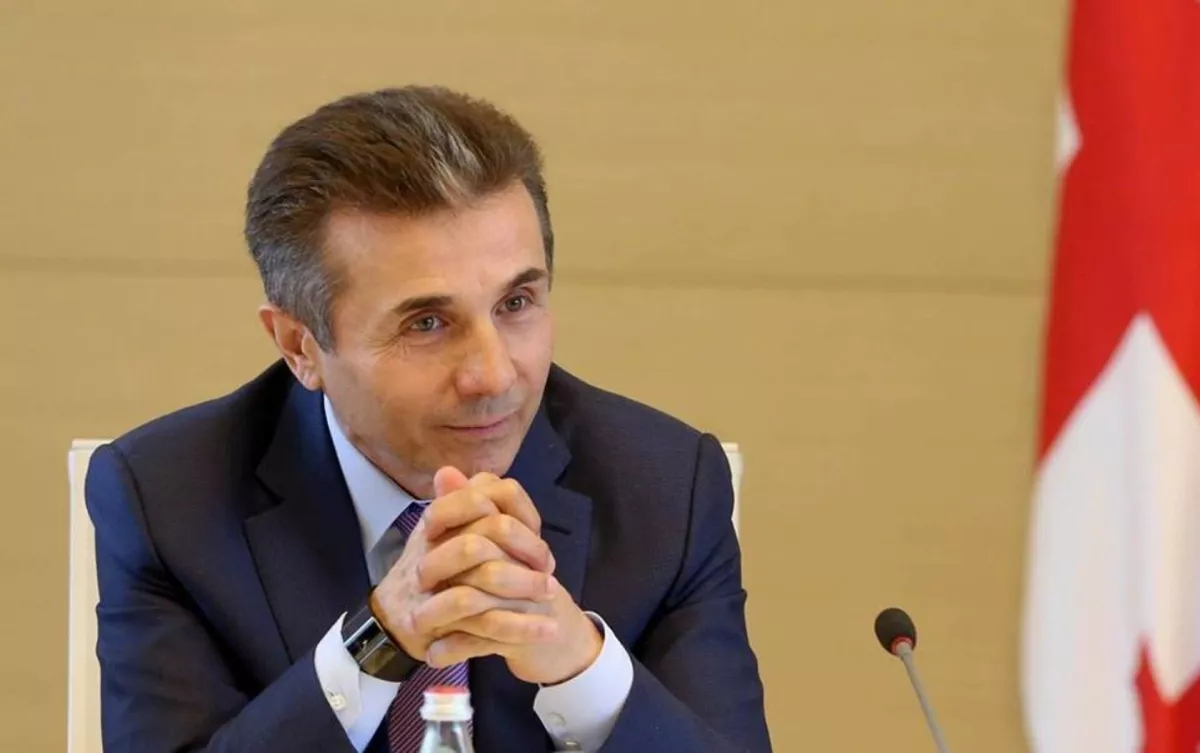Political landscape: Can opposition challenge Georgia’s ruling party? Election 2024
On September 10, 2024, the ruling party Georgian Dream – Democratic Georgia announced the first twenty candidates on its electoral list for the upcoming parliamentary elections set for October 26, 2024. The list is led by the party’s de facto leader, Bidzina Ivanishvili, with current Prime Minister Irakli Kobakhidze in second place. The key question for these elections is whether Georgian Dream will secure a simple majority or achieve a constitutional majority, which the party leadership is aiming for.
Pro-government pollsters predict that the ruling party will receive around 60% of the vote. In contrast, opposition-leaning pollsters forecast at least 34% for Georgian Dream, which would still make it the leading party compared to its rivals. Historically, Georgian Dream has received about 1.5 times more votes than opposition forecasts.
The elections are shaping up to be a referendum on the trustworthiness of the Georgian Dream party. Despite recent protests sparked by the "Foreign Influence Transparency Law," the scale of these demonstrations has been somewhat exaggerated by foreign media.

The wave of protests quickly died down. The demonstrations were driven by pro-Western NGOs affected by the "foreign agents" law, primarily involving young people from the capital. Past experience shows that this type of youth, eager to participate in protests, often does not exhibit the same level of enthusiasm when it comes to voting.
In contrast, the Georgian Dream party’s base consists of provincial residents, public sector workers, and middle-aged to elderly individuals. These voters, particularly from rural areas, are expected to predominantly support the ruling party in the upcoming election on October 26, 2024. There are no significant grievances among the broader population, and salaries for public sector workers are regularly, if modestly, increased.
Georgia's economy continues to grow, benefiting from cooperation with Türkiye and Azerbaijan. The positive impact is also supported by the opening of the Russian market to Georgian agricultural products, as well as an influx of tourists and relocants from Russia. The Georgian Dream party maintains pragmatic economic relations with Moscow, which helps the country to maintain stability amid the ongoing war in Ukraine.
Prime Minister Irakli Kobakhidze has stated that the elections on October 26 will serve as a referendum on whether the country will maintain peace or open a "second front" in the war in Georgia. The Georgian population employed in tourism and services generally supports a peaceful approach and is not opposed to an influx of tourists from Russia. In fact, the influx of Russian tourists began during Mikheil Saakashvili’s presidency when he lifted the visa regime. Given this context, opposition's anti-Russian rhetoric and accusations that the Georgian Dream party is "working for Putin" are unlikely to be effective in the upcoming elections.
Moreover, the Georgian Dream party is firm on not compromising on the country’s territorial integrity, insisting on the peaceful reintegration of Abkhazians and South Ossetians. While many Georgians have negative views towards Russia and the occupation of Abkhazia and Tskhinvali, few are willing to support war. The prolonged conflict in Ukraine has only strengthened the desire for peaceful resolutions. Some Georgians hope that Azerbaijan’s example in restoring territorial integrity might encourage Russia to adopt a more flexible approach to Georgian issues.
The "Karabakh precedent" has given many Georgians hope that Russia might eventually agree to restore Georgia’s territorial integrity in one form or another. While this is not openly stated in Moscow, the rhetoric and attitude towards separatists have noticeably changed—a fact that has not gone unnoticed in Georgia. For instance, on September 1, 2024, Russia sharply reduced its funding for separatists in Sukhumi. In the Russian segment of social media, there are increasing calls to return the "ungrateful" Abkhazians to Georgia.
Separatist-minded residents of Abkhazia, judging by social media, are in a state of near panic following the reduction in funding. Some ethnic Abkhazians are now considering possible reconciliation with Georgia. Interestingly, Abkhaz Armenians, who have become a de facto majority in the separatist "republic," are generally strongly opposed to returning to Georgia, even within a "confederation." This resistance is understandable, as they fought against Georgia and have taken possession of "trophy" properties.
The opposition, meanwhile, believes that there is no chance for the voluntary return of the Russian-occupied regions of Abkhazia and Tskhinvali and accuses the Georgian Dream party of being willing to recognize the separatists' "independence" to please the Kremlin.
Currently, the opposition offers no practical solutions for restoring territorial integrity beyond vague hopes that "the West will help us" or "Russia will collapse." The idea that Georgia could use military means, with US and EU support, to reclaim Abkhazia and Tskhinvali—especially by opening a "second front"—is widely regarded as unrealistic. The events of August 2008 have shown Georgians the limited effectiveness of "verbal" support from the West. Another example visible to Georgians is Ukraine, which has been at war for three years, receiving Western assistance but making little progress towards restoring its territorial integrity. Meanwhile, the Georgian Dream party remains committed to seeking EU membership and NATO accession while insisting on preserving the country’s sovereignty and Georgian identity.

Another factor gaining the Georgian Dream party support from the deeper layers of Georgian society is its backing from the Georgian Orthodox Church (GOC), to which over 80% of Georgian believers belong. The religiosity of the Georgian population is significantly higher than in Russia or Armenia. In August 2024, the leaders of Georgian Dream announced their intention to enshrine Orthodox Christianity as the state religion in the Constitution. The GOC, however, considered this move excessive for the time being.
After consultations between the Patriarchate and Georgian Dream representatives, an agreement was reached that the party would propose an amendment to the Constitution post-election, defining Orthodox Christianity as a cornerstone of Georgian national identity. The opposition, in contrast, does not demonstrate strong commitment to Orthodoxy, which could cost it votes from the electorate.
In its election program, Georgian Dream emphasizes not only the protection of traditional values but also the enactment of corresponding laws. Despite stern warnings from Washington and Brussels and threats to "halt Georgia's EU accession," on September 4, 2024, the Georgian parliament passed the "Law on Family Values and Protection of Minors" in its second reading. The new law legislatively bans so-called "same-sex marriages," "gender reassignment" procedures, "adoption of children" by LGBT individuals, LGBT promotion and propaganda in educational institutions and media, "gay pride parades," and similar activities. The US and the EU reacted negatively to the new law, and the opposition did not vote for it. However, the majority of Georgians support the initiative as an important step towards preserving national identity.
The opposition has failed to unite or to present a single leader. Most opposition politicians come from the United National Movement, the party of former president Mikheil Saakashvili, who is currently imprisoned. Protests demanding Saakashvili's release have virtually disappeared over the past two years. Since Saakashvili's time in power (which ended in 2012), a whole generation has grown up that does not remember "how things were before Saakashvili" and the reforms he implemented. In principle, Georgian Dream could release the former president without significant consequences for its election results.
The current president, Salome Zourabichvili, who was a former French citizen and worked for the French Foreign Ministry, cannot be considered a true leader of the opposition. Other opposition politicians are even less known and do not hold significant "authority" in Georgian society.
On the ballot, the Georgian Dream party, listed as number 41, will stand out amidst a multitude of opposition "European" parties that failed to form a unified list. Representatives of Georgian Dream refer to their opponents collectively as the United National Movement, the original name of Mikheil Saakashvili's political force. Given the new electoral law, which stipulates that only parties receiving at least 5% of the votes will enter parliament, the fragmentation of the opposition works to the advantage of Georgian Dream.
The opposition is running in several separate blocs. Some opposition groups will likely siphon off votes without reaching the 5% threshold. This fragmentation gives Georgian Dream a chance to secure a constitutional majority. However, the real issue today is not whether Georgian Dream will win the election, but whether the opposition and, more importantly, the US and EU backing it will recognize this victory. There are precedents of such "non-recognition" by the West in the post-Soviet space.
For example, Belarusian President Alexander Lukashenko received 80% of the vote in the last election, while his main opposition rival, Sviatlana Tsikhanouskaya, garnered only 10%. Nevertheless, the US and EU declared the election "rigged" and did not recognize its results. Although removing Lukashenko from power through "revolution" was unsuccessful, it does not mean that a similar attempt will not be made in Georgia.

It is no coincidence that Prime Minister Irakli Kobakhidze, during an election speech, claimed that the "radical opposition," lacking any real hope of winning the elections, plans to destabilize the situation afterward. According to Kobakhidze, the opposition is not considering a scenario where Georgian Dream stays in power; instead, they are focused on how Georgian Dream might allegedly rig the elections.
Moreover, if the opposition were to win, Georgia might become a "hotbed of revolution and a breeding ground for pro-Western opposition" in the South Caucasus and potentially Central Asia. A victory for Georgian Dream would likely force a reassessment of such plans.
A clear victory for Georgian Dream would prevent Georgia from becoming a center for spreading revolutions, which would positively impact its cooperation with Azerbaijan, Türkiye, and other countries involved in the Middle Corridor, all of which need stability for economic development and transit. Conversely, instability in Georgia—especially if the election results are disputed and there is an attempt to change the government by force—could provoke geopolitical turmoil throughout the region.
Vladimir Tskhvediani, Georgia, for Caliber.Az








